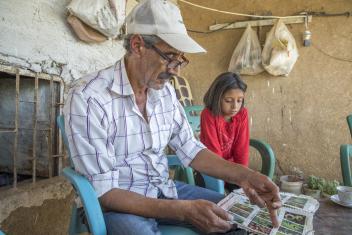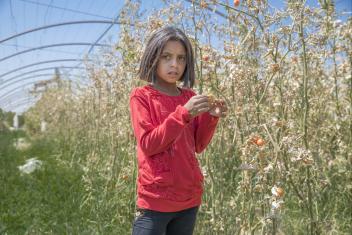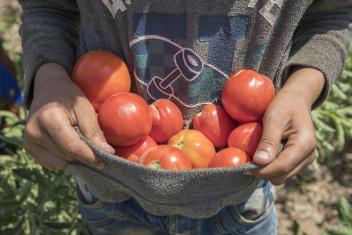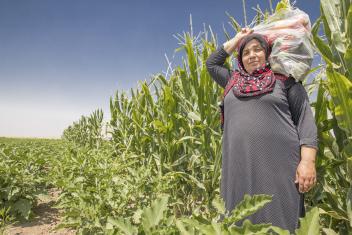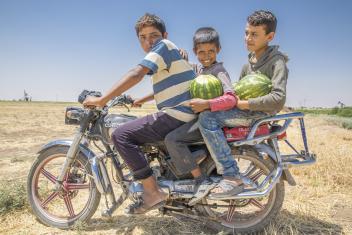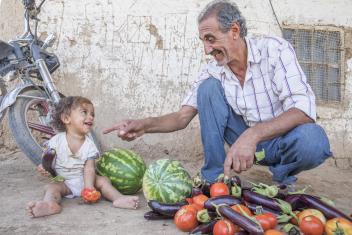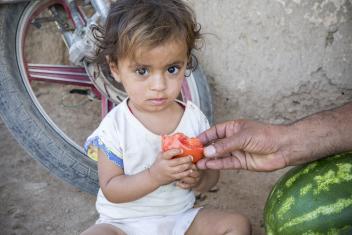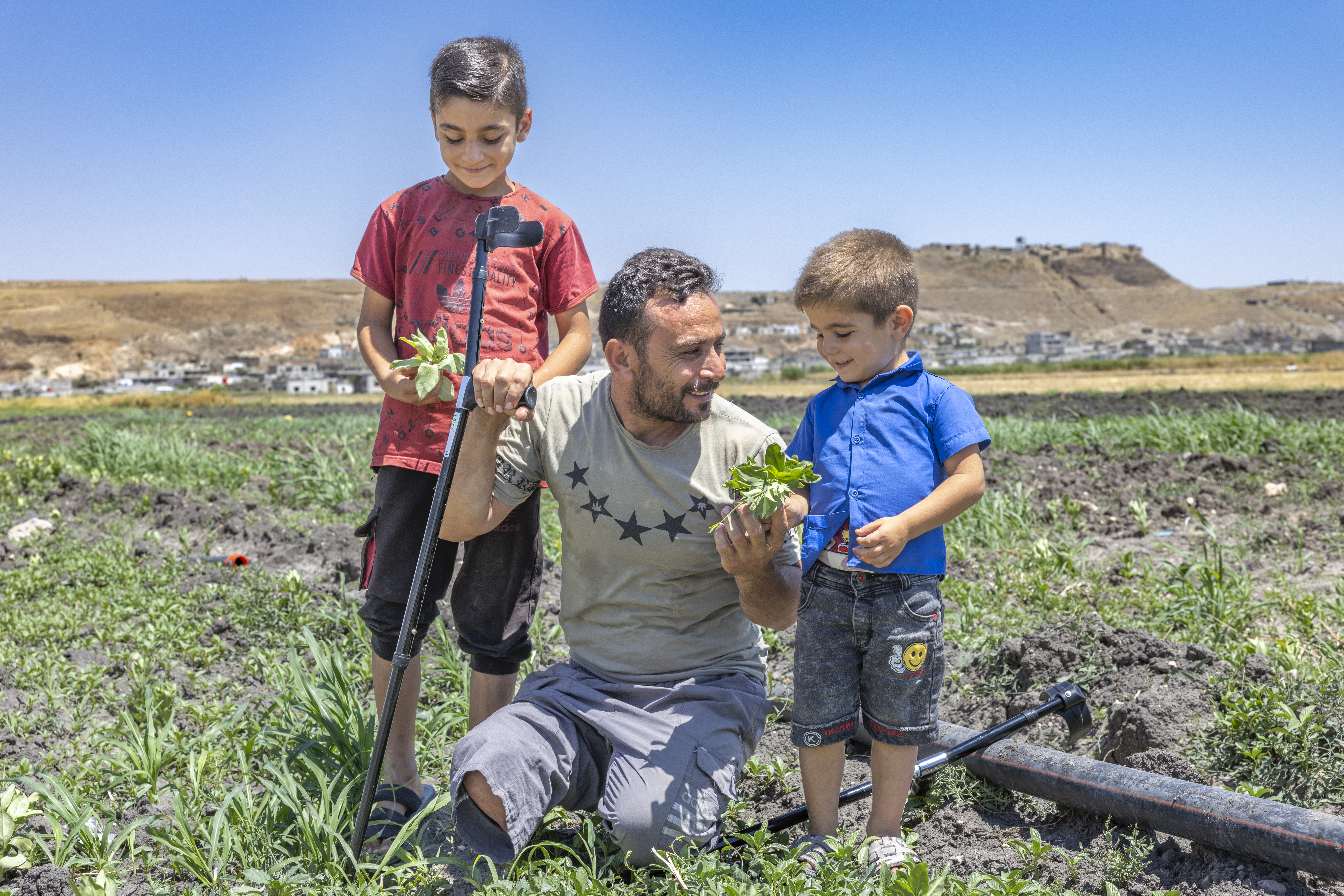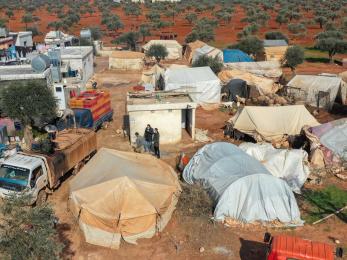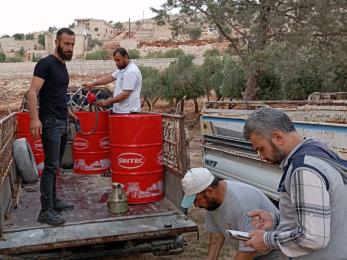A farmer in Syria
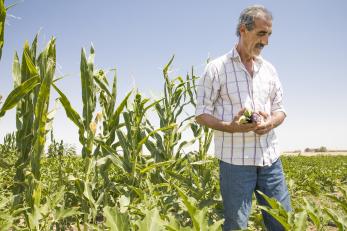
In a land scarred by conflict, one Syrian farmer sees something unexpected: opportunity.
Seven years into conflict, reminders of Syria’s war are inescapable as you drive the country’s dusty roads. Yet if you can manage to look past them, you begin to see something familiar — a lush landscape that starts to look more like home. Rolling hills dissolve into fertile farmland that blankets the landscape. Small houses dot the horizon, punctuated by the occasional watermelon stand sitting quietly by the side of the road.
While parts of Syria, including Eastern Ghouta, are still experiencing intense fighting, many areas of the country aren't in conflict. And so on one of these plots of land, Abu Goubran, a tall, proud grandfather, is stooped over in the hot midday sun, harvesting bright purple eggplant. He works quickly, filling bags, handing them to his wife, then moving on to tomatoes, watermelon and sunflowers. There is a light in his eyes and a lifetime of experience at his back. “He knows farming better than his children’s names,” a Mercy Corps team member jokes.
Abu Goubran does not own this land, but Mercy Corps connected him to the landowner who was interested in benefiting from his expertise. With resources provided by Mercy Corps, including the area’s first greenhouse, together they have seen yields increase dramatically. The greenhouse generates 10 times more produce than they were getting before.
“I am an artist,” he says, joyfully sharing a red, juicy tomato with his beaming 1-year-old granddaughter, Wia. “I have a gift inside me, which is agriculture.”
After so many years of loss, optimism can be in short supply in Syria. But scenes like this instill hope. They give a glimpse at the possibility that still exists within Syria's people — and what it looks like when they are able to achieve it.
Mercy Corps is powered by the belief that a better world is possible — in Syria and around the world. You are an important part of our mission. Here's how you can help.
